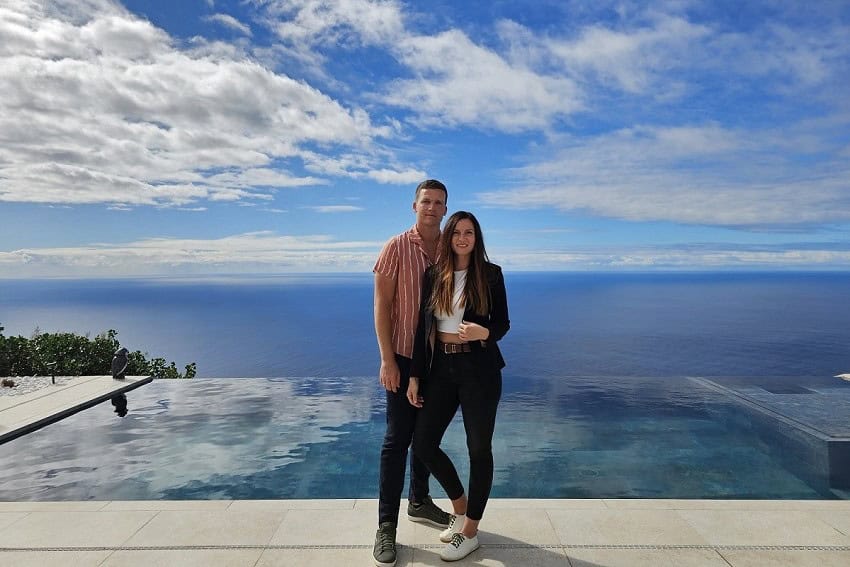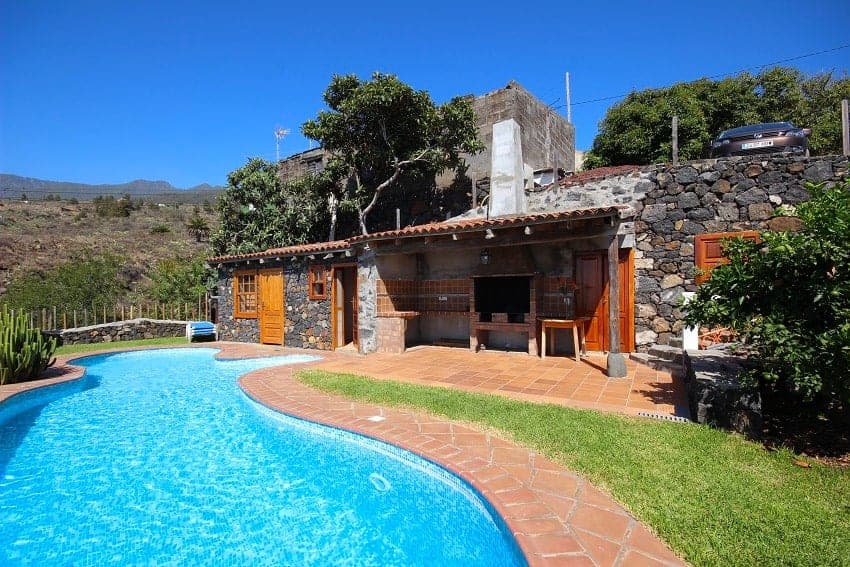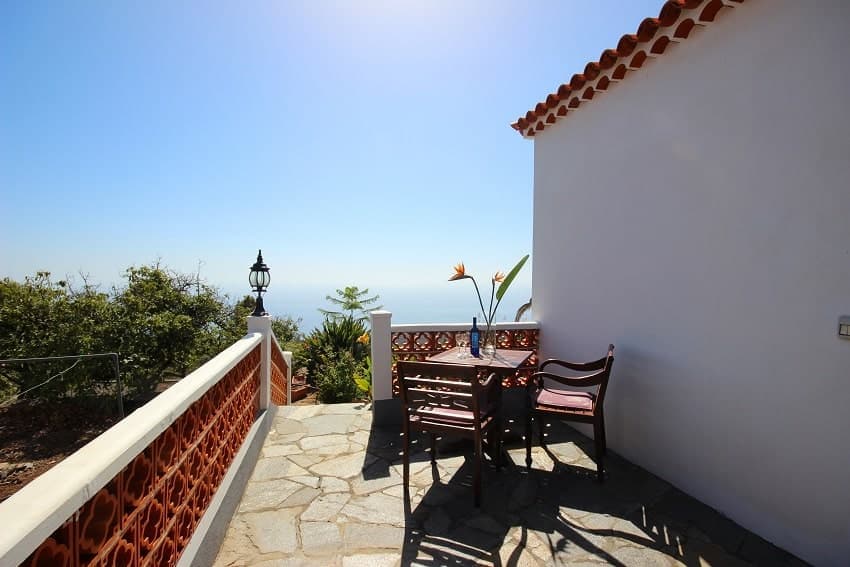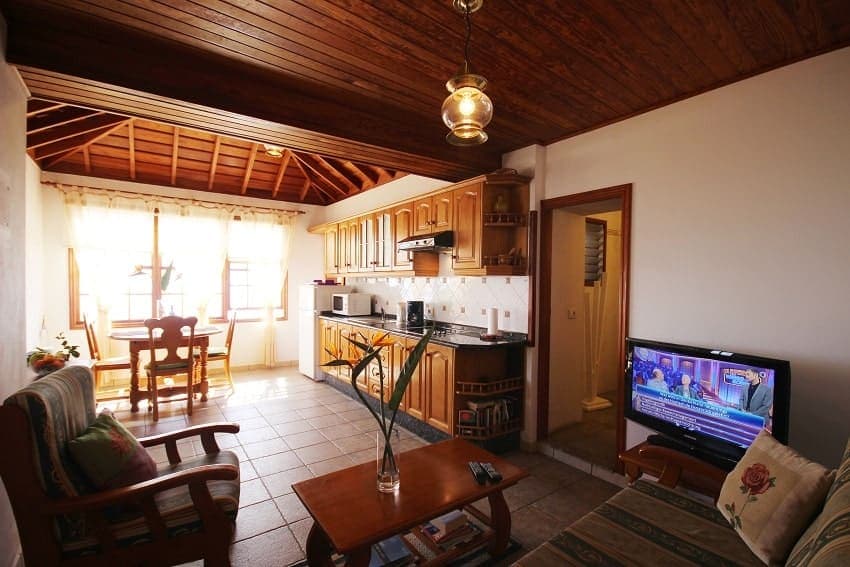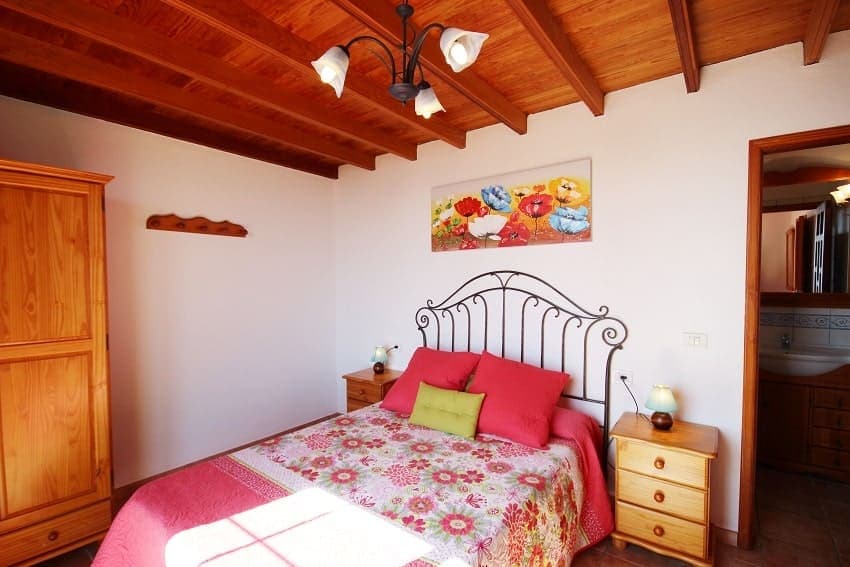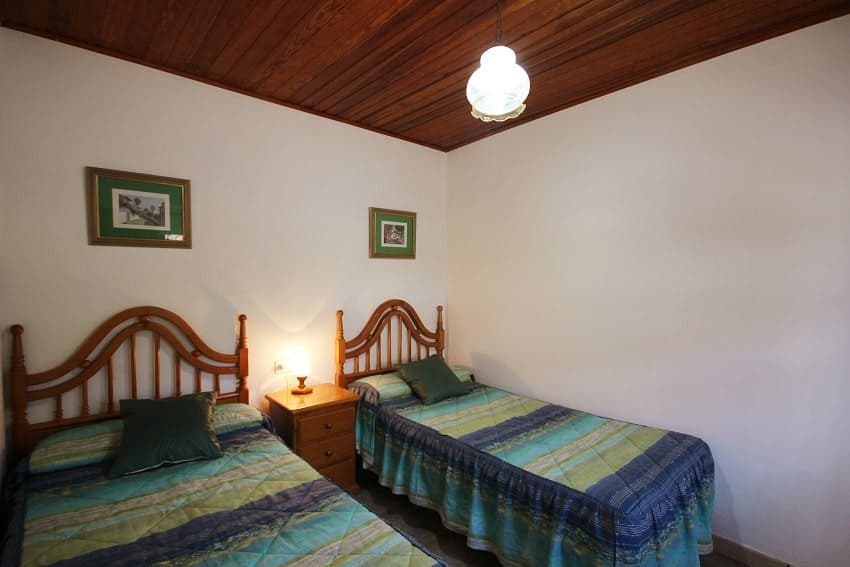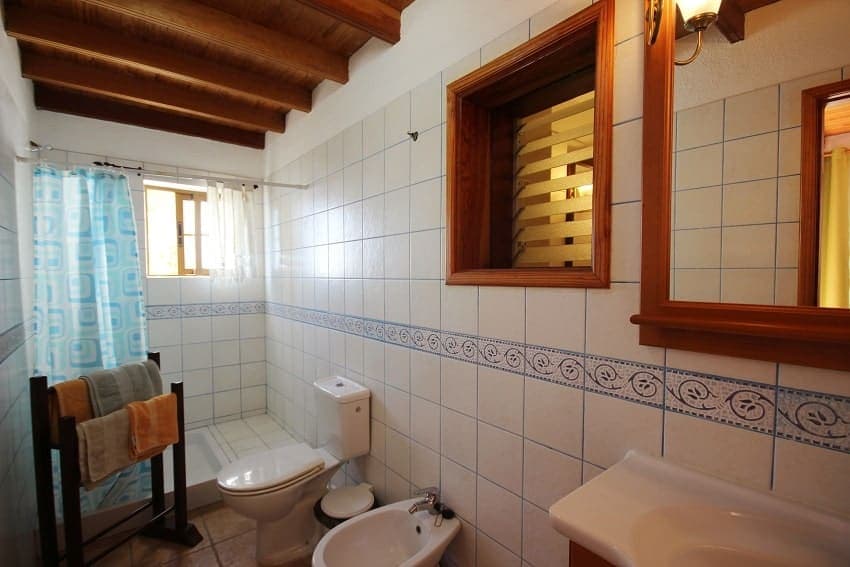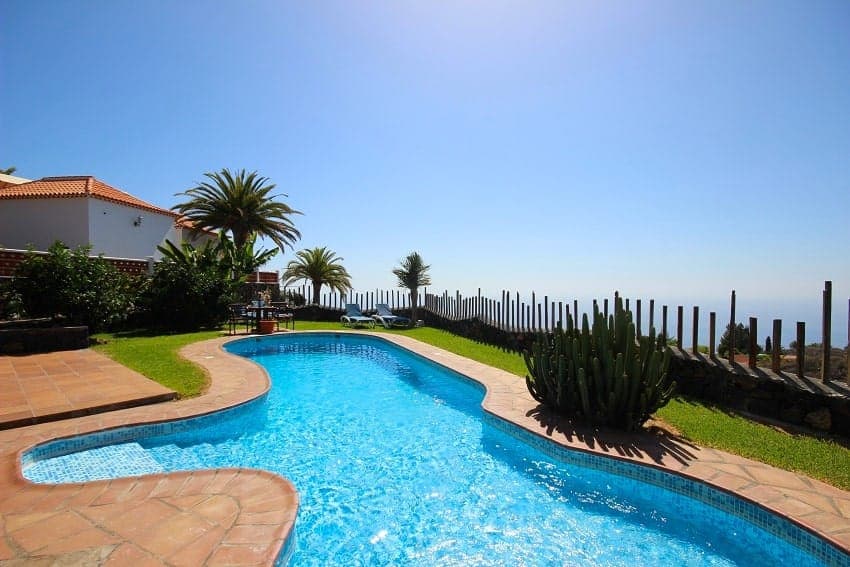Availability
Finca Los Dos Patos (C)
 1
1  2 2
2 2 





Tranquil finca in Tijarafe with three accommodations for up to 13 guests, offering sea views, a shared saltwater pool, and a barbecue in a sunny location.
Finca Los Dos Patos C provides plenty of space for a relaxing holiday in Tijarafe. The apartment accommodates up to five guests with two bedrooms, two bathrooms, and a sofa bed in the living room. The open-plan kitchen and living area offers everything needed for self-catering. Furthermore, the small private terrace is ideal for enjoying the warm Canarian climate.
Guests also have access to extensive communal facilities as part of the finca: a swimming pool surrounded by sun loungers and a large barbecue area, perfect for shared meals. Moreover, the rustic style reflects traditional Canarian architecture and blends harmoniously with the natural beauty of the surroundings. This apartment is an excellent choice for families, friends, or larger groups, especially when combined with the other apartments for a joint holiday experience.
The estate consists of two idyllically overgrown vacation houses, separated from each other by a narrow path. The vacation apartment Los Dos Patos C is located on the ground floor of the two-storey house. On the upper floor is the separate apartment Los Dos Patos B. Next door, Los Patos A is situated with 1 bedroom.
Moreover, explore the beauty of Tijarafe and discover local attractions and activities on the official tourism website.
Facilities
- 1 Double Bed 140x200
- 2 Bathrooms
- 2 Double Bedrooms
- 2 Single Beds 90x190
- 4 Single Beds 90x190
- Baby Cot
- Barbecue
- Bed Linen & Towels are Provided
- Bidet
- Coffee Maker
- Community Pool
- Dryer
- Electric Heating
- Electric Kettle
- Fridge
- Garden
- Grill
- Hair Dryer
- High Chair
- Internet - WiFi
- Iron
- Ironing Board
- Living Room with Kitchen and Dining Room
- Microwave
- Outdoor Furniture
- Oven
- Parking Space
- Radio
- Safe
- Salt Water Pool
- SAT-TV
- Shared Washing Machine
- Shower
- Sofa Bed
- Stove
- Sun Umbrellas
- Sunbeds
- Terrace
- Toaster
- Washing Machine
- Weekly Cleaning
- Weekly Linen & Towel Change
Internet
Location and Distances
Medical help
Check In / Check Out
Payment / Cancellation
Additional information
We are sorry, there are no reviews yet for this accommodation.
La Palma
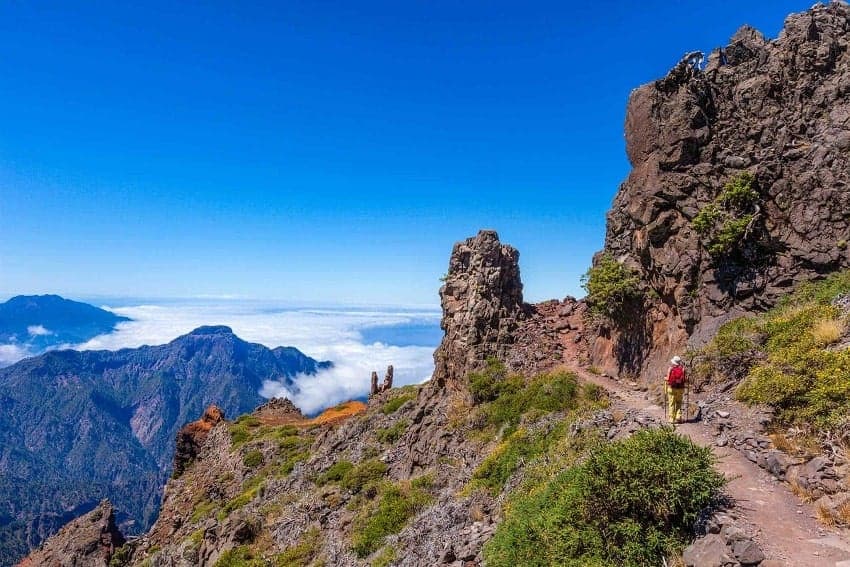
The island of La Palma offers breathtaking landscapes, remote beaches, imposing volcanoes, dense forests and incomparably starry skies.
With its 708 square kilometres, an elevation of 2.426m and its shape of a heart it is the most Western island of the Canary Island chain. Like every island in this archipelago, La Palma was created by volcanic activity. It is one of the youngest of the seven islands, dating back some 1.7 million years. The volcanic origin of La Palma is still clearly recognizable today, especially the southern part of the island with the dormant volcano Teneguía which last erupted in 1971, and offers interesting insights into its geological past.
The year-round mild climate with average temperatures between 18 and 27 degrees Celsius produce spring-summerlike weather as a result of the northeast trade winds.
This weather phenomenon is responsible for a pleasant subtropical climate and a rich green vegetation that prevails because of the humidity carried along in the trade winds. These moisture rich winds at certain times of the year also create a spectacular waterfall of clouds cascading down the central mountain faces and hence the nicknames Isla Verde – Green Island and Isla Bonita – Beautiful Island.
The unique geological structure of the island with its variety of vegetation zones and microclimates that are rarely found in the world on such a small area make this island a miniature universe. Each area of the island varies completely from another. In 1983 La Palma was declared a UNESCO biosphere reserve.
Another special feature of La Palma is the unique night sky. Due to its location in the Atlantic Ocean, sparse population, minimum light pollution and highest mountain peak Roque de los Muchachos 2.426m, the island was chosen as the location for one of the largest and modern observatories in the world.
The official population of the island is approximately 80,000 people. Traditional festivals such as the Bajada de la Virgen or Los Indianos carnival, famous far beyond the island’s borders, bear witness to the zest for life of the local people (Palmeros). Not only the geographical location, but also the numerous immigrants from Central and South America show a variety of Hispanic influences in island life, cuisine and cultural.
Read more...

